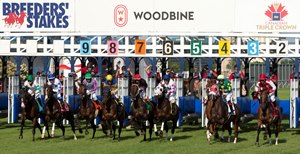Canadian Racing Bodies Push to Legalize HHR


Canadian racing bodies are hoping to use races that have already been run to secure their future in the face of the COVID-19 pandemic.
Woodbine Entertainment, Ontario Racing, and Racetracks of Canada have approached Canada's federal government requesting the legalization of historical horse racing, in which punters bet on races that have occurred in the past, to provide a new source of income while racing is shut down.
In a statement, the three organizations said that legalizing HHR would "provide support during the immediate crisis period, as well as during any future shutdowns that may be necessitated by the potential of a second or third wave of COVID-19."
They added: "This solution is unique because it provides an opportunity to offer a sustainable economic solution for an entire industry without the need for any increase in public funding."
Canada's horse racing industry generates more than 47,000 full-time jobs, the statement said, and contributes CA$5.6 billion (about US$3.97 billion) a year to the national economy.
HHR, in which information is presented so players cannot identify the race in question before placing a bet, is legal in certain states in the United States, including Kentucky, but would require a change in Canadian law, which prevents betting on events that have already taken place.
Woodbine chief executive Jim Lawson said this week that he was hopeful that racing could return in the province of Ontario in June following a successful inspection of facilities at Woodbine racecourse by the Toronto COVID-19 Task Force.
"We are still optimistic for the resumption of live racing in June," he said. "We continue to meet with the (Ontario's Alcohol and Gaming Commission) with respect to amendments to the rules of racing necessary to permit the resumption of live racing in the province as quickly as possible."
